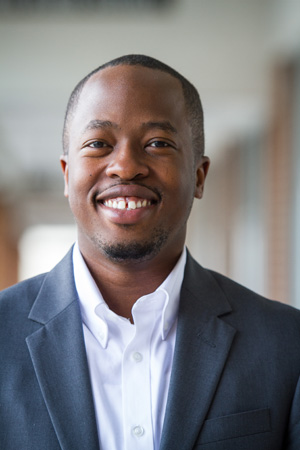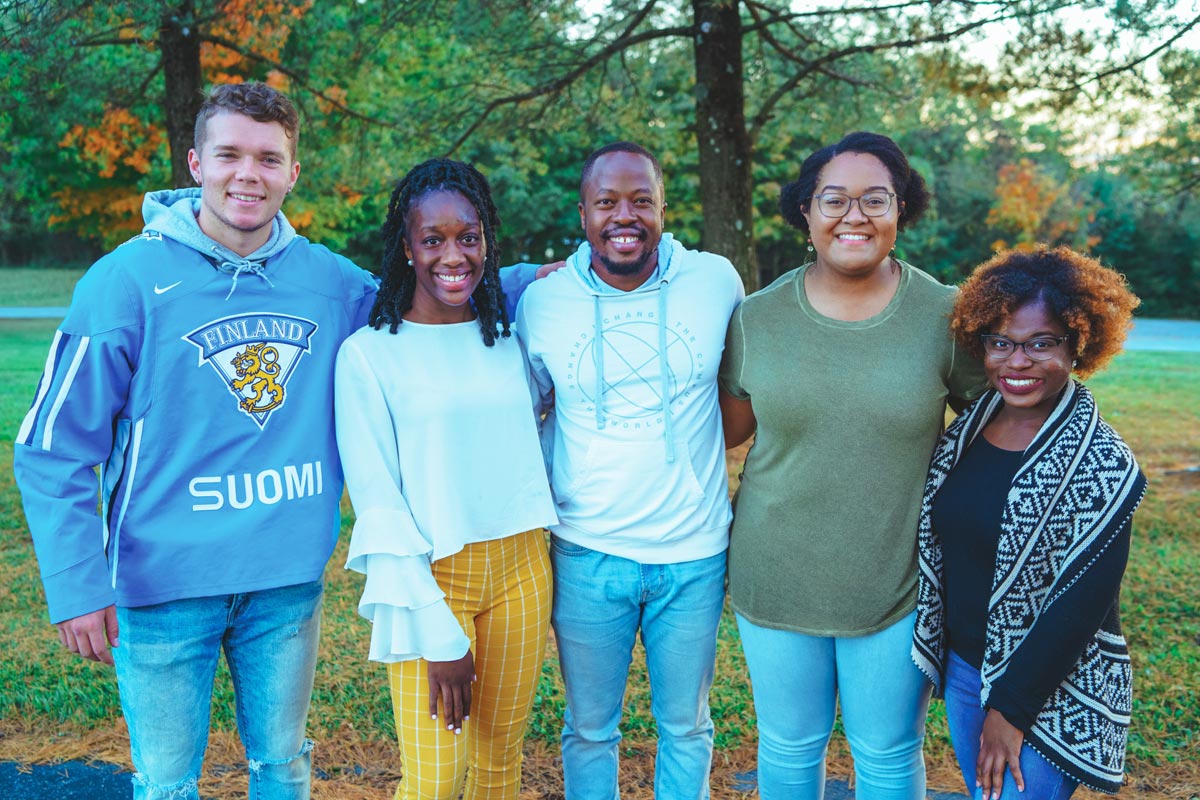We Listen and Learn
An interview with ministry partner, AJ Mosley, Executive Pastor of Divine Unity Community Church (DUCC), in Harrisonburg, Virginia. Four of this year’s tranSenders are serving with Every Nation Campus (ENC), the global movement with which DUCC is affiliated.
 DUCC is a dynamic multiethnic, multicultural, multigenerational church. How do you sense that God is using you “for such a time as this?”
DUCC is a dynamic multiethnic, multicultural, multigenerational church. How do you sense that God is using you “for such a time as this?”
It has been said that “the church is like the eye. It has a little black in it and a little white in it, and without both, we cannot see.” Because of our distinctive demographic, we are in place to help the church see the plight or privilege of their brothers and sisters more clearly. By doing so, we gain a more robust understanding of the gospel.
Beyond this, we want the broader community to see that divine unity is not just our name, but it is our mission and our strategy. We aim to show those who encounter our community that there is a different (better) way than what we’re currently being presented with in popular culture.
Finally, we realize that the Lord has uniquely given us influence on the local campuses. Learning the “language” of college students has allowed us to keep the presentation of the gospel fresh and relevant for those who hear it. We see what we do on the campus as a launching point for many leaders that will go out to the world and make a difference with a biblical worldview.
We see some potential of dividing walls being torn down in this developing partnership between VMMissions and DUCC. What are the walls that you see God helping us to notice?
Traditionally, the term mission was applied to someone “here” who went “there.” I have appreciated how this partnership has worked to tear down that wall of thinking and encouraged the college campus as a unique mission field worthy of full-time exploration.

Divine Unity Community Church (DUCC) Pastor AJ Mosley (center) with VMMissions tranSenders Nik Tucker (left), Bryce Bouldin, Victoria Barnes, and Gabrielle Thorne. They all serve with Every Nation Campus and attend DUCC. Courtesy photo
Additionally, through our partnership with the tranSend program, we have created an avenue for students to go into part-time mission work directly from college. This has allowed students to realize in greater measure that the call for mission is not something that they have to wait to answer “later in life,” but can be answered immediately.
What do you want to say to mission agencies or churches that have been largely monocultural for most of their history?
For the mission agencies/churches that have been largely monocultural, my response is simply a one-word question: Why? For DUCC, multicultural ministry wasn’t a good idea, it was a conviction from God. Thus, our approach was that if we missed the mark on this, we were missing the mark on what God had called us to do. Others may not believe that a multicultural gathering or movement is something the Lord has asked them to foster or lead. However, if the gathering of monoethnic ministry was derived from personal preference or cultural norms, and not out of kingdom calling, I would increasingly seek God as to whether or not he is pleased with what has been formed.
What are some things that we can DO that would be meaningful to those who have felt marginalized within our community or by our institutional structures?
There are three things that come to mind: repentance, reconciliation, and representation. If there are ways that a church or organization has been complicit in causing the pain of a marginalized people group, repentance is helpful. It breaks the bitterness of the one feeling victimized and opens the door for the Lord’s healing work to take place.
The second is reconciliation. Reconciliation works to see those marginalized groups brought into the fold in a greater way. It works not only to apologize for the wrong but to right the wrong in a deeper and meaningful way.
And finally, representation. By putting those in the margin in places of authority—(only as God affirms, of course)—where they can be visibly seen, it communicates to others on the margin that they have a place and are represented in the church/organization.
